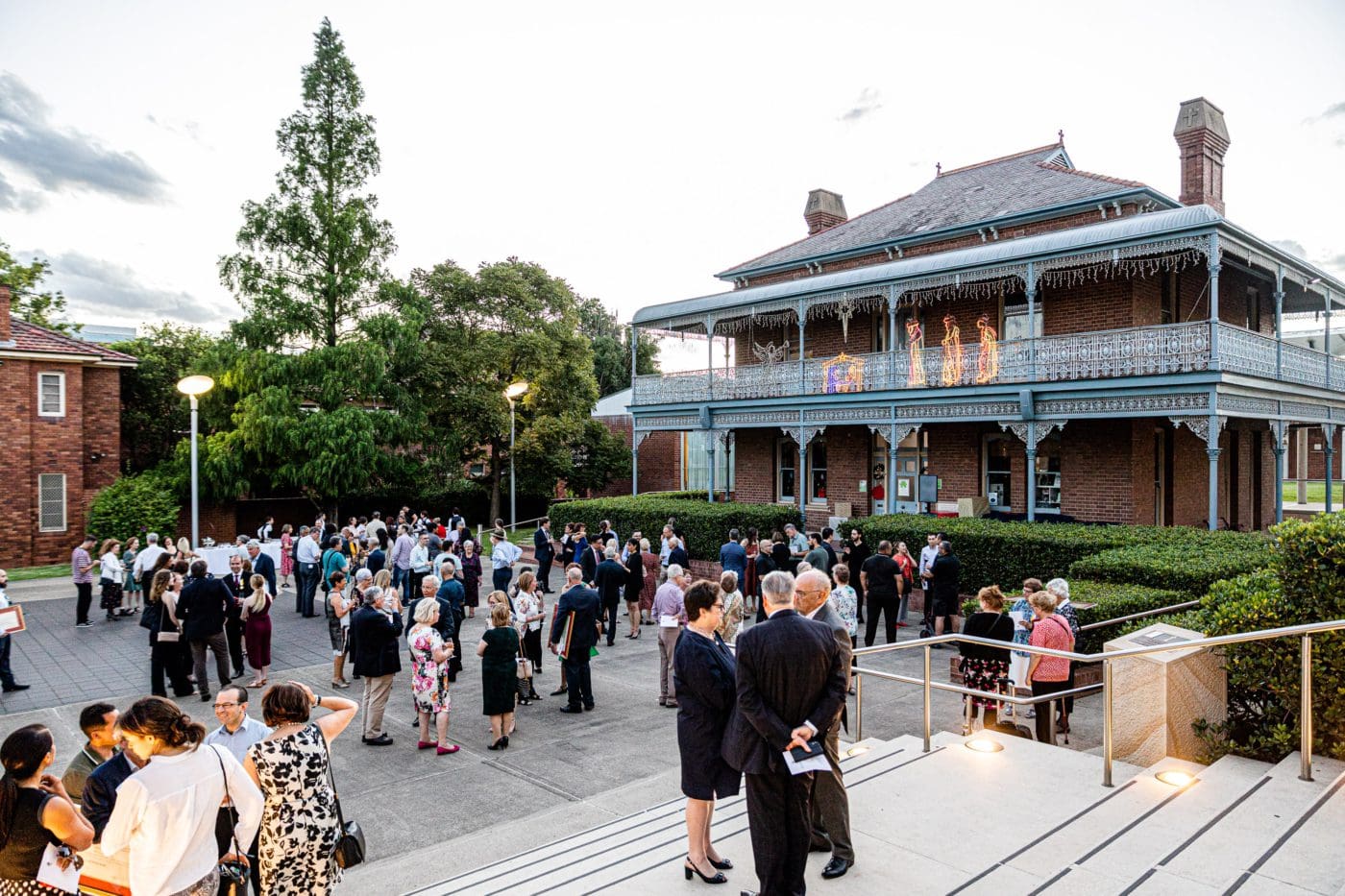Papal Diocesan awards are presented to individuals and groups who have made significant contributions to the Catholic Church and its community.
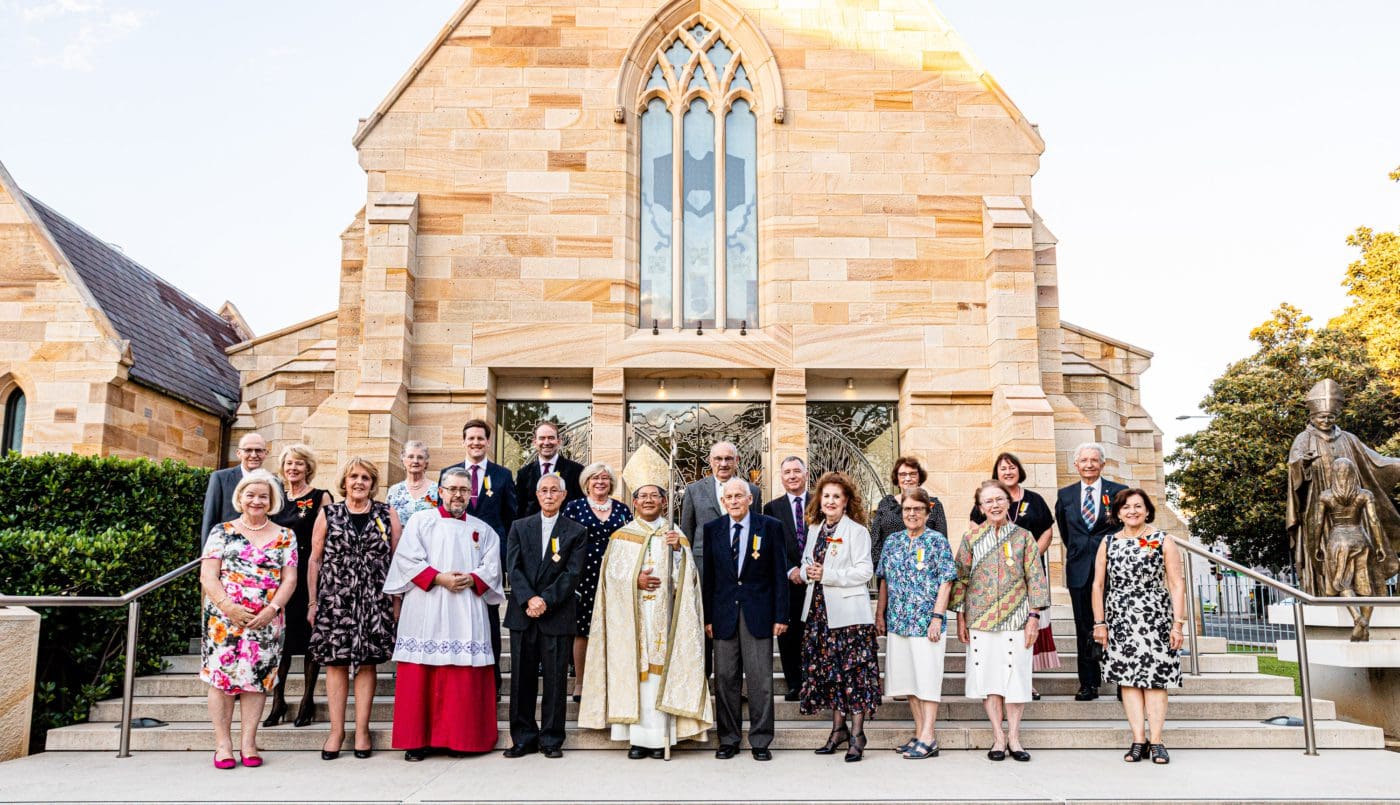
There are so many people in the Diocese of Parramatta who selflessly contribute to their parishes and communities and create long-lasting impacts on individuals, our Church and society. We feel its important to recognise the many incredible people who dedicate their time and lives to the service of others.
If you know of someone who deserves to receive one of these esteemed awards, please get in contact with our team.
The Papal Honours System
The papal honours system dates back many centuries, with each honour or award having its history and relevance in the life of the Catholic Church. The Holy Father grants all honours and awards, and the local church only has a role in promoting nominations for the grant of such honours or awards.
The papal honours system seeks to encourage aspirations and ideals of the highest standards and values within the Catholic Church by recognising people who have:
- Shown outstanding valour and bravery on behalf of the Church and Society; or
- Carried out conspicuous deeds of merit in Church and Society; or
- Provided significant services to the Church by persons who have maintained unswerving fidelity to God and the Sovereign Pontiff; or
- Been instrumental in conspicuous activity in support of the Church (including non-Catholics), particularly in the exercise of their professional duties; or
- Undertaken meritorious work on behalf of the Church.
The degree and value of the contribution made by the person nominated are to be the primary focus in considering nominations rather than the length of service.
The system of papal honours for the laity comprises three separate orders which are currently awarded, being:
- The Order of Pius IX
- TThe Order of St Gregory the Great
- The Order of St Sylvester.
The Holy Father may also award:
- The Pro Ecclesia et Pontifice Cross
- The Benemerenti medal
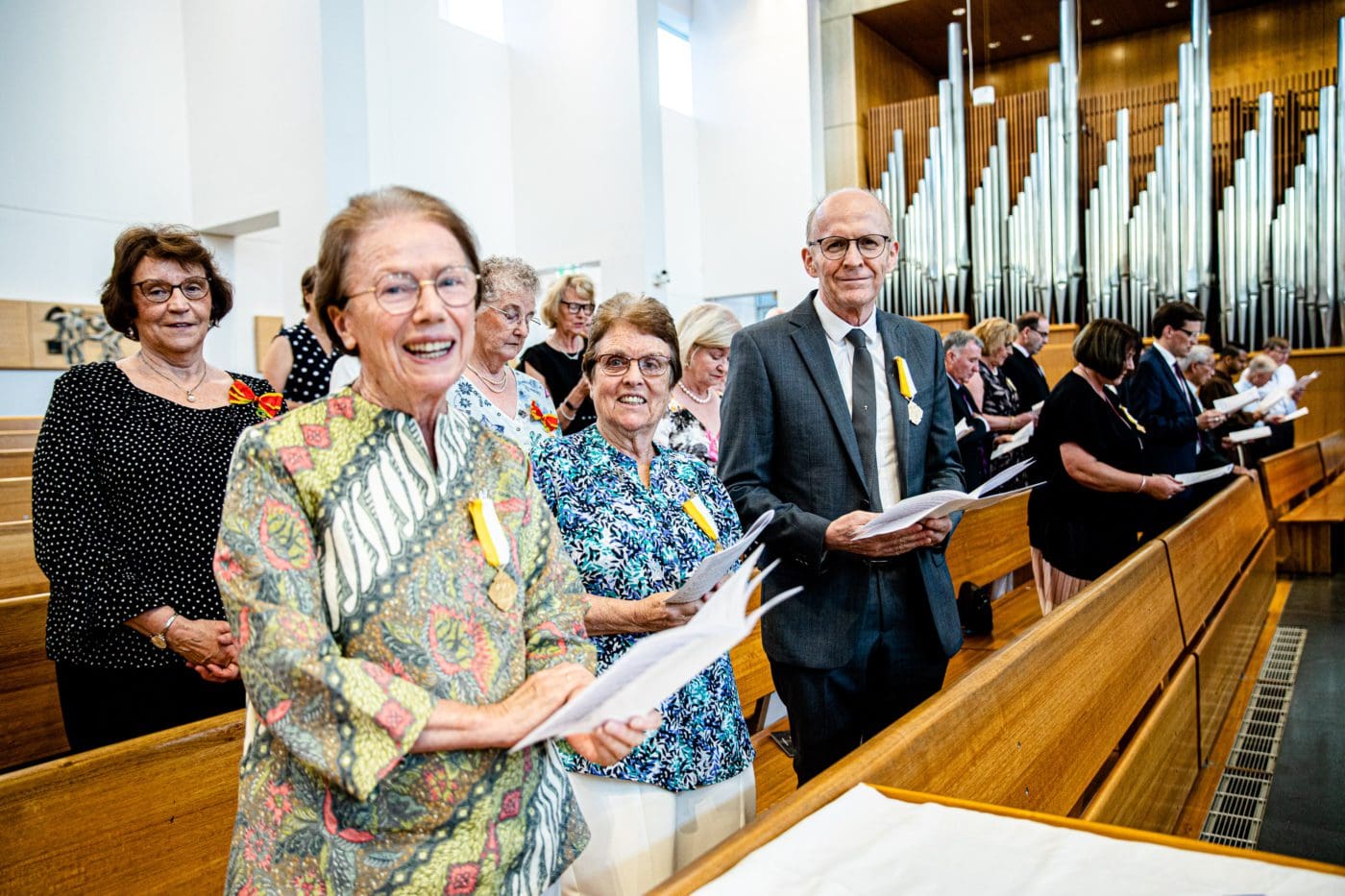
Civil Awards
Civil awards are those awards that make up the Australian Honours and Awards system which are awarded upon recommendation by the Governor-General. The Order of Australia is the most popularly recognised award within this system.
The Diocesan Honours Committee might recommend to the Bishop that an individual who has contributed to both Church and society in many and varied ways be nominated for the Order of Australia. Similar to the Papal Honours System, Australian Honours and Awards are intentionally recognised.
Diocesan Awards
Three Diocesan Awards may be awarded by the Bishop upon the advice of the Diocesan Honours Committee and the College of Consulters.
- The Diocesan Medal of Honour
The Diocesan Medal of Honour seeks to encourage and recognise outstanding contributions and service by members of the Parramatta Diocesan Community in work on behalf of the Church and society. It is awarded for outstanding service to the Diocese of Parramatta, to a recipient’s parish, and/or their community.
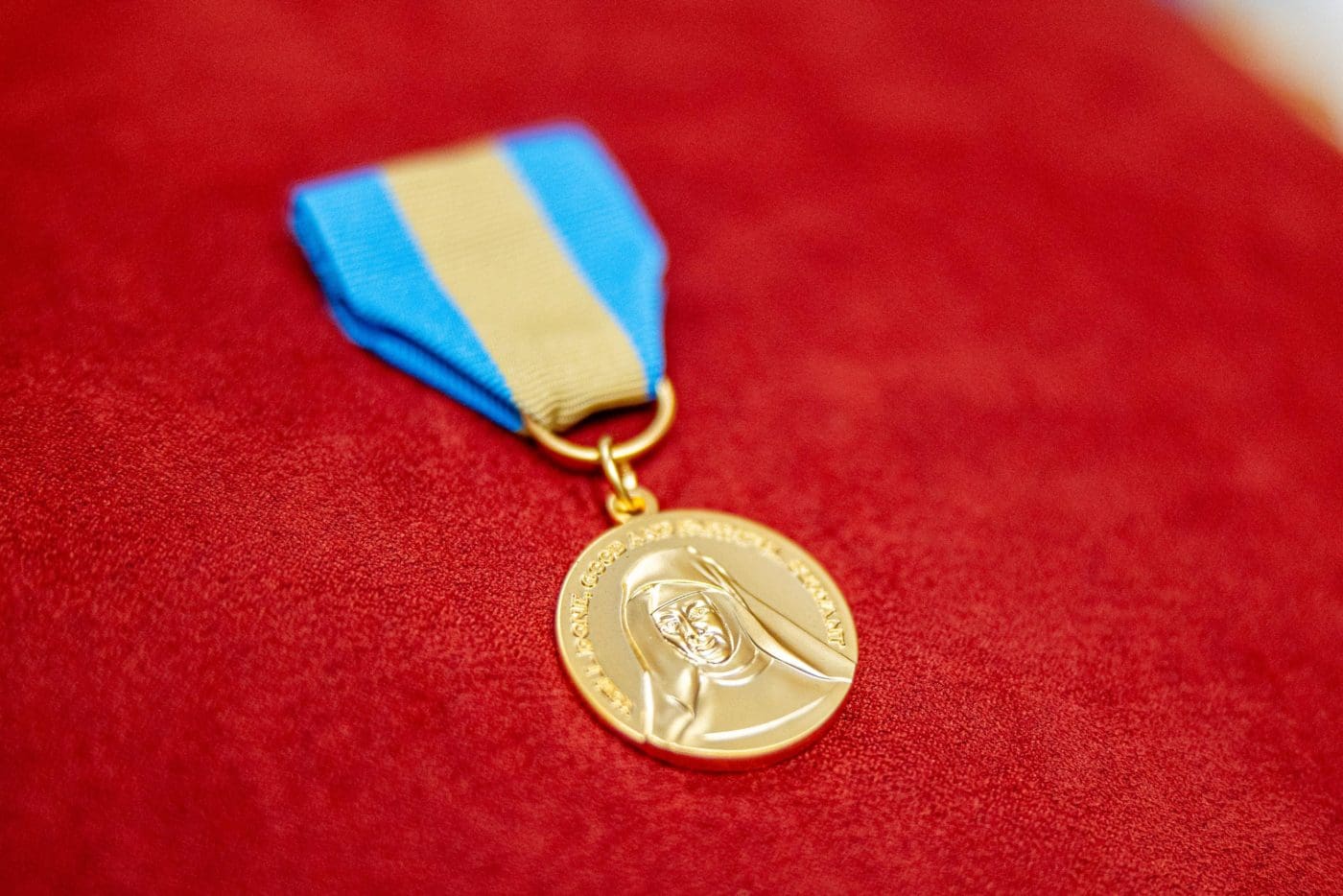
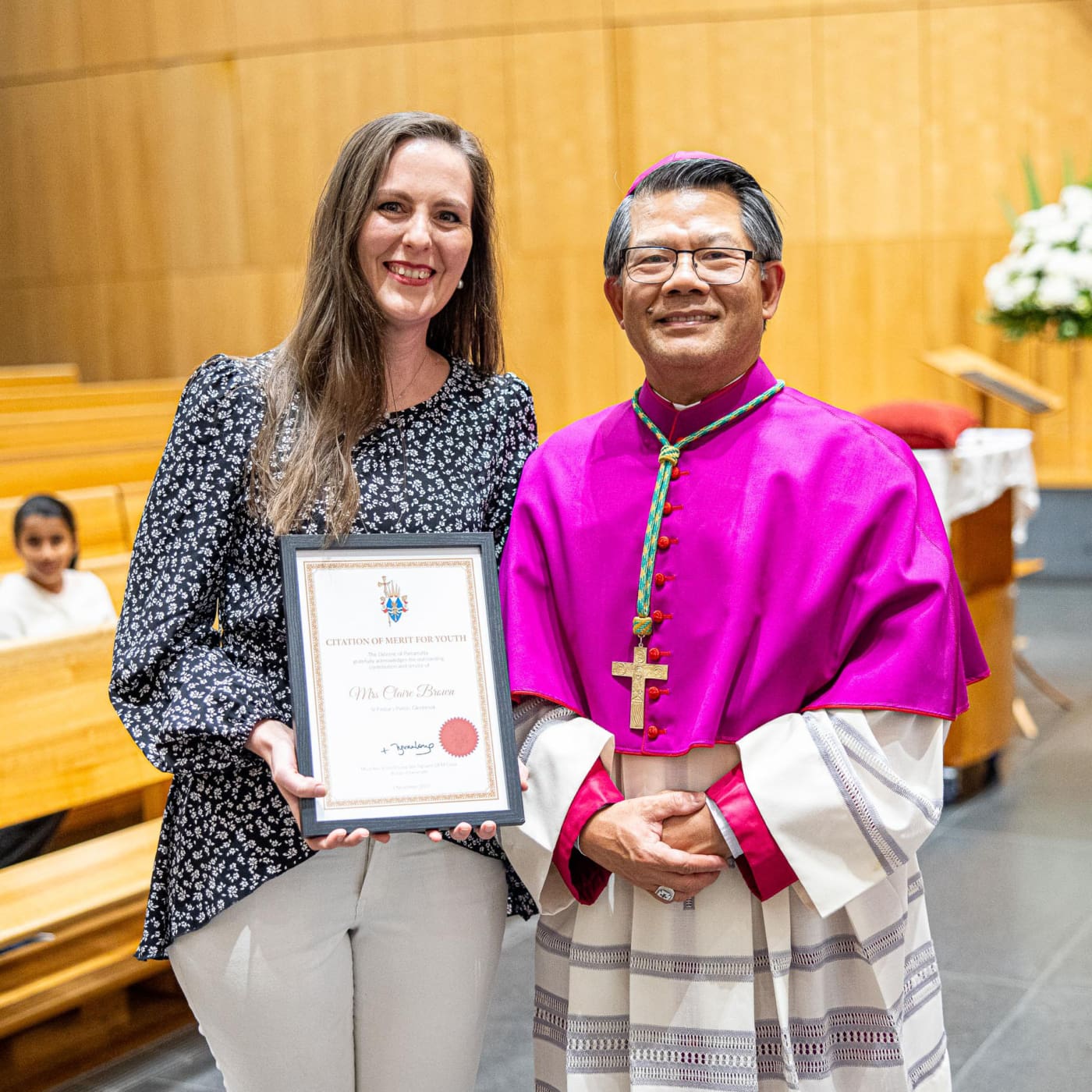
- The Diocesan Citation of Merit for Youth
The Diocesan Citation of Merit for Youth seeks to encourage and recognise Catholic youth between the ages of 18 and 25 who have shown outstanding contribution and service to the Diocese of Parramatta, to a recipient’s parish, and/or their community.
- The Diocesan Certificate of Recognition
The Diocesan Certificate of Recognition seeks to encourage and recognise outstanding contributions by non-Catholic members of the Diocese of Parramatta community, for work supporting the Diocese of Parramatta, to a parish, and/or their community.
Nominations Process
Who can be nominated?
Any person worthy of grateful recognition by the Church and society can be nominated.
Who can make a nomination?
Any Australian citizen, including any priest, religious brother, religious sister, other Catholic individual or church agency, commission, or similar group can make nominations.
How do you prepare a nomination?
When completing the nomination form, it is important to provide specific examples of how the nominee’s contribution to the Diocese, the Catholic Church, or society has been outstanding.
In addition to providing a list of appointments or positions held by the nominee, it is helpful to include examples that best show how the nominee has gone above and beyond what could be reasonably expected of someone in a similar position. In preparing the nomination, time should be devoted to considering why you think the nominee’s service and achievements are outstanding and worthy of recognition through the papal honours system, by a civil award, or by a Diocesan award.
How are nominations assessed?
Nominations made within the Diocese of Parramatta will be referred to the Diocesan Honours Committee to provide advice to the Bishop of Parramatta. The Bishop of Parramatta will forward nominations for Papal honours which have his support to the Vatican Secretariat of State for consideration. The decision to award Diocesan Medals rests with the Bishop of Parramatta upon the recommendation of the College of Consultors.
Is it necessary to provide referees?
Yes, the names and addresses of individuals who would be in a position to comment directly on the nominee’s service should be provided together with written references. As a general guide, two referees are required for each nomination plus a supporting statement from the Parish Priest or equivalent (i.e. School Principal, Direct Manager etc).
Are nominations confidential?
All nominations are strictly confidential, and the information provided will be used only to assist the Bishop and the Committee in considering the merits of the nomination.
The person being nominated should not be approached for information or advised of his or her nomination at any stage.
The Diocese will not respond to any requests made by nominators or other interested parties in respect of the progress of any particular nomination.
How long does it take to be considered?
All nominations referred to the Committee will be considered by the Committee, which meets not less than twice per year.
Following receipt, each nomination is thoroughly researched, and referees may be contacted. When all relevant information has been obtained, the nomination is considered by the Diocesan Honours Committee and a recommendation is submitted to the College of Consultors. The College of Consultors will then make a final recommendation to the Bishop for the granting or not of an award. A Papal honour nomination, if supported by the Bishop, is submitted to the Vatican Secretariat of State and this process can take up to two years.
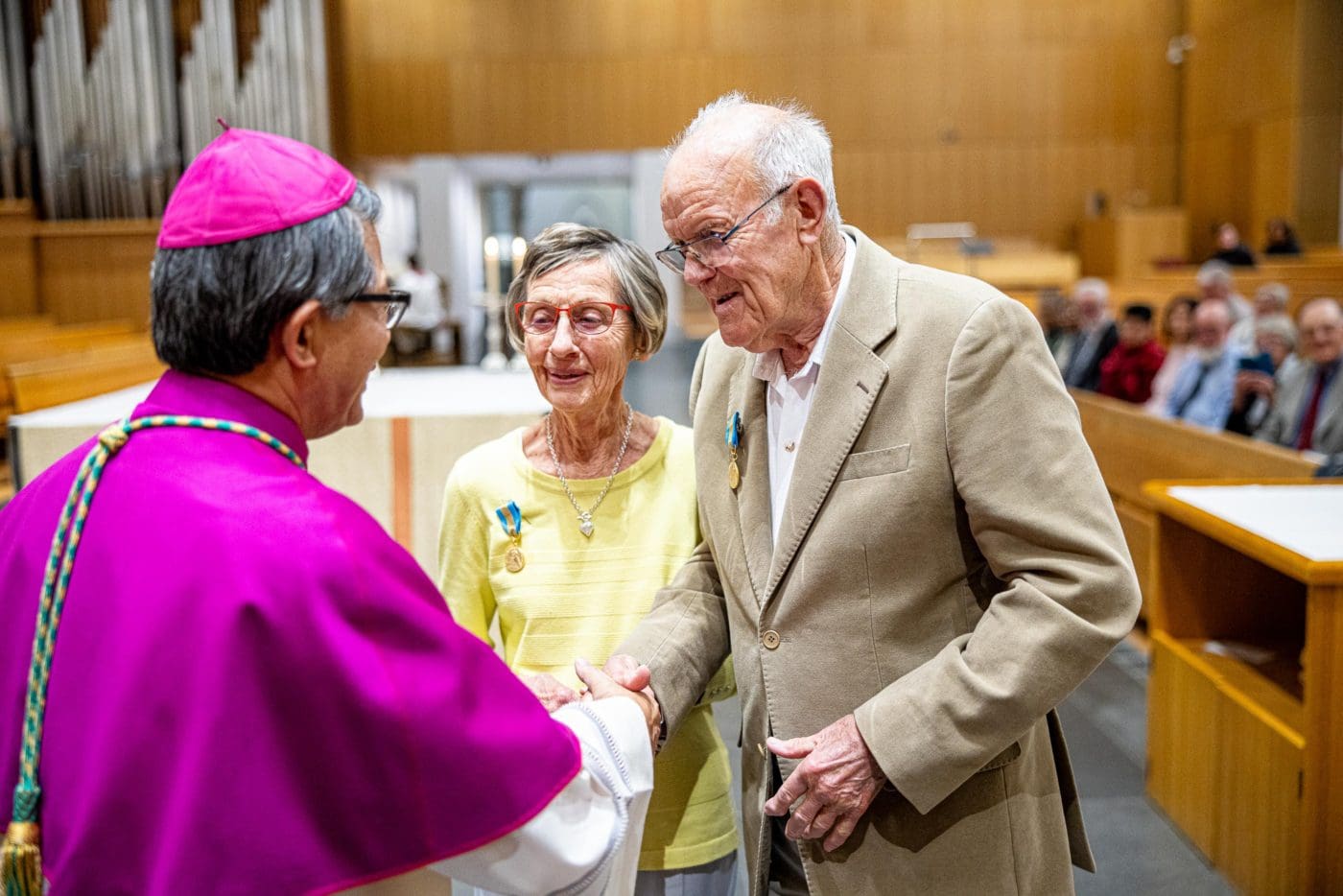
To submit a nomination or find out more about Papal and Diocesan Awards, contact the Chancery.

